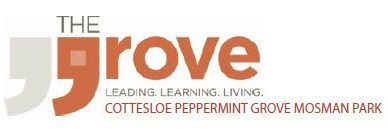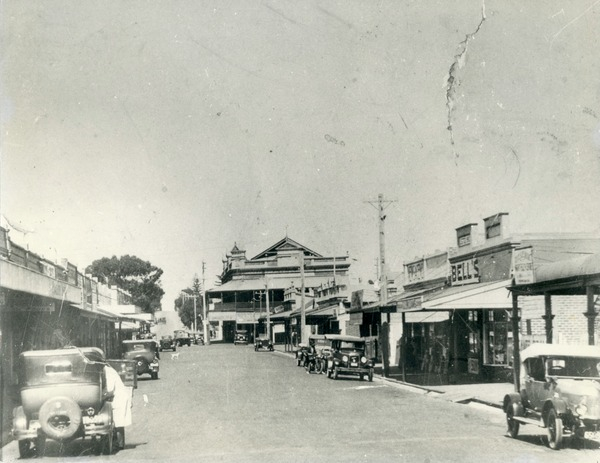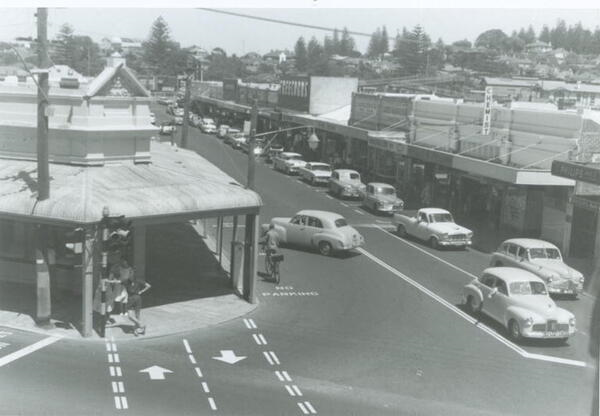Reminiscing Napoleon Street, Cottesloe
Rita Ártelaris and Vi Galatis descended from families who migrated to Australia from Greece. Their families ran businesses next door to each other in Napoleon Street in Cottesloe. Rita’s family ran the local fish and chip shop Cottesloe Fish Supply at No 22 and Vi’s family ran the Denis & George Greengrocers at No 24.
Viola or ‘Vi’ Galatis was born in Newcastle Street in Perth in 1935. Her parents were Evangeline and Denis Gelatis. Her mother was born in Perth to a migrant Greek family. Her father was born in Greece and migrated to Australia in 1923. Vi’s parents met through a small Island Greek community and were married in 1934. Vi’s father had opened the Napoleon Street Greengrocer business one year earlier in 1933. He had a cousin with a similar business in Claremont and decided to buy the shop in Cottesloe.
Rita was born Margarita Kanakis on 15th March 1935 in Devonleigh Hospital in Cottesloe. Her parents were Dimitri or ‘Jim’ Kanakas and Clementine Kanakas. Both were born on the island of Ithaca in Greece. Rita’s father migrated to Australia in 1910. Their marriage was arranged by proxy and her mother came out to marry her father in 1933. Rita’s father opened his shop on Napoleon Street in 1922. Peter Ventouras joined him a few years later. Vi’s family shop ‘Denis and George’ was a Greengrocers selling fruit, vegetables, and soft drinks. “Nothing else,” said Vi. The produce was stacked neatly on the shelves and the fruit was polished. Vi remembers oranges and lemons were sold by the dozen and everything else was sold by the pound in weight. People were discouraged from touching and the delicate fruit was kept behind the counter. The cheaper fruit which was smaller or of inferior quality would be placed on the counter and the higher quality fruit would be displayed out of reach. There was an old-fashioned cash register denoting pounds shillings and pence, and scales sat at each end of the counter. Vi remembers the cash register would not add together the customers purchases. Her father would tally the customers purchases in the margins of old newspapers then enter the total into the till.
The counter was on one side of the shop whilst on the other side were wooden fittings with bins for vegetables. Potatoes, onions, and carrots were on the bottom and leafy vegetables were on the top. The shop was particularly busy in summer, and they were well known for their produce. Vi recalls people would travel from other suburbs to shop there.
Vi remembers a cat lady would sometimes visit the shop in the evenings when she was there with her mother. Vi said, “The lady used to come out to the back of the shops with a pair of scissors and she would go to Rita’s scrap bins, this was in the very old days when I was quite young, and she would go clip, clip, clip, with the scissors and all the cats would come running as she chopped up the fish. She must have lived somewhere in Station Street or near there. My father wasn’t too fond of her.”
Rita’s parents owned the fish shop, Cottesloe Fish Supply. Rita remembers one side of the shop had the fresh fish counter and ice in the window to display the fresh fish. The other side of the shop sold fish and chips. There were three or four tables for dining in customers. The shop sold a large quantity of fresh fish. Rita recalls the shop had a very good reputation with people coming from all over the metropolitan area to visit the shop. They had many regular customers and knew them by name.
The potatoes were bought from suppliers. They would be dirty, and a machine would wash and cut the potatoes into chips. A dozen chips would be produced from each potato. Before the electric machine was introduced this would have been done by hand. The most popular types of fish were snapper, cobbler, and mullet. Mick the butcher used to go fishing and people from Mosman Park used to bring in fish to sell. They sold local caught fish and crabs.
The shop used to be open six days a week from early to eight o’clock at night. Friday nights were remarkably busy, and from 4 pm until 7:30 pm, people would queue and catch up on weekly news. Shellfish was popular at Christmas and Easter. The shop used to deliver every Friday to the deaf school and to a couple of private schools in the area. The office of the Western Australian newspaper would also place an order. The shop used to order flour from the Eureka flour mill in Cottesloe. The flour would be delivered in sacks for the batter. In those days Rita recalls, people used to have fish regularly on Fridays, now people eat fish every day of the week.
Rita and Vi remembered Napoleon Street as being very different from now. They recalled ladies would come and do their shopping in twin set and pearls. Cottesloe in those days was a vibrant place. Napoleon Street was the place for people to congregate. They would stand in the street and chatter.
Amongst the early shops on Napoleon Street, which Rita and Vi remembered, was Davey & Son newsagents at No. 17-19, which had operated since 1929. There was Allans the chemist at No. 34, Freecorn the grocers at Nos. 28-30. There was also Buchanans drapery shop on the corner at No. 2. They recall there was always a deli where Vans now is, Brass tearooms run by a mother and son were also there at one time. Vans did not arrive until later. There was Evans electrical store at Nos. 46-48 which sold electrical appliances and Clarkson’s hardware store at No. 40, two doors down from the Bank of New South Wales at No 42. There were also butcher shops.
The butcher shops had a big white chopping board and there was always sawdust on the floor. Rita recalls that all of them had it. Vi remembers the butcher cut the meat by a handsaw or a knife on request. Rita said, “In those days, in the piggeries, the pigs were fed on anything… The pig men would come around to the back of our shop and collect all the insides and all the bits and pieces of the old fish… that is where they all went… We used to put it into tins …and the pig men would come around and collect it all and feed all the pigs with it. That is why my husband never ate pork and neither would I!”
Rita and Vi’s parents did not make many changes to the shops when they ran them but did put in coolers after the war in the early 1950’s. Vi’s parents sold their shop in the 1950’s. when it was bought firstly by Sam Radunovich, who Vi recalls did not stay for very long, and then by a man called Bruno. Bruno owned the shop from the mid-1950s until her brother bought it in the late 1990s. Vi and Rita both fondly recall that Bruno was special to Napoleon Street. The shops were open from 9 am to 5.30 pm Monday to Friday and would close early on Saturday afternoon. Around 2pm on a Saturday Bruno would regularly go up and down the street on Saturday afternoon calling out his specials; foods he could not keep until Monday. They said he loved talking to people.
When the Boatshed markets opened, Rita and Vi said they eventually took the food shops away from Napoleon Street. The Boatshed was a change in concept. People wanted to shop out of hours. The shops on Napoleon Street used to close at midday on Saturdays and close at 5.30 on weekdays. The boatshed in contrast was open seven days a week and open until seven or eight o’clock at night.
Rita and her husband Tony Artelaris took over her family’s business in 1959, after her father passed away. Rita said, “We bought it and completely renovated it front and back… We shut it down for three weeks or so. Everything was completely new. We had the shop until our two sons (Stathi and Dimitri) took over, and semi-retired about 1979.” Meads took over the shop in 1993. Vi trained at Claremont Teaching College and became a teacher working at both Cottesloe and Mosman Park Primary Schools. Rita and Vi remember Cottesloe as a wonderful place to grow up in. They recall It was a lovely supportive community. Vi recalls that many Greeks who grew up in Lake Street in the Perth area were severely harassed because they were Greek. They do not recall that happening in Cottesloe. Vi recalls it was pretty rough during the war because they mixed up Greeks with the Italians who they didn’t really like very much.” Rita said, “We were not discriminated against at all down here. Not at all.


